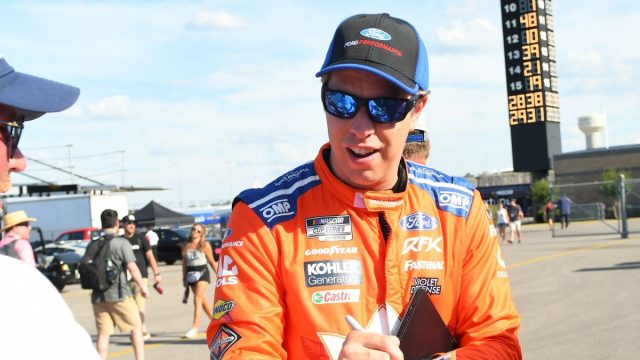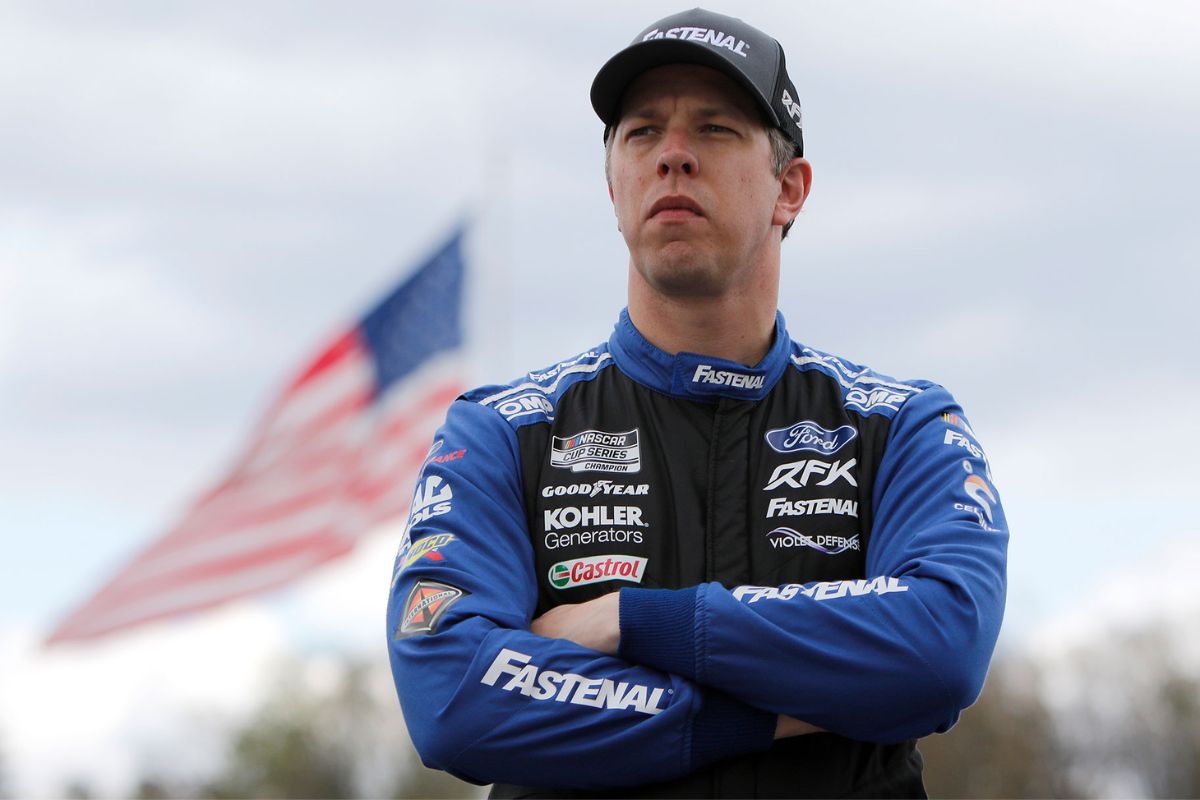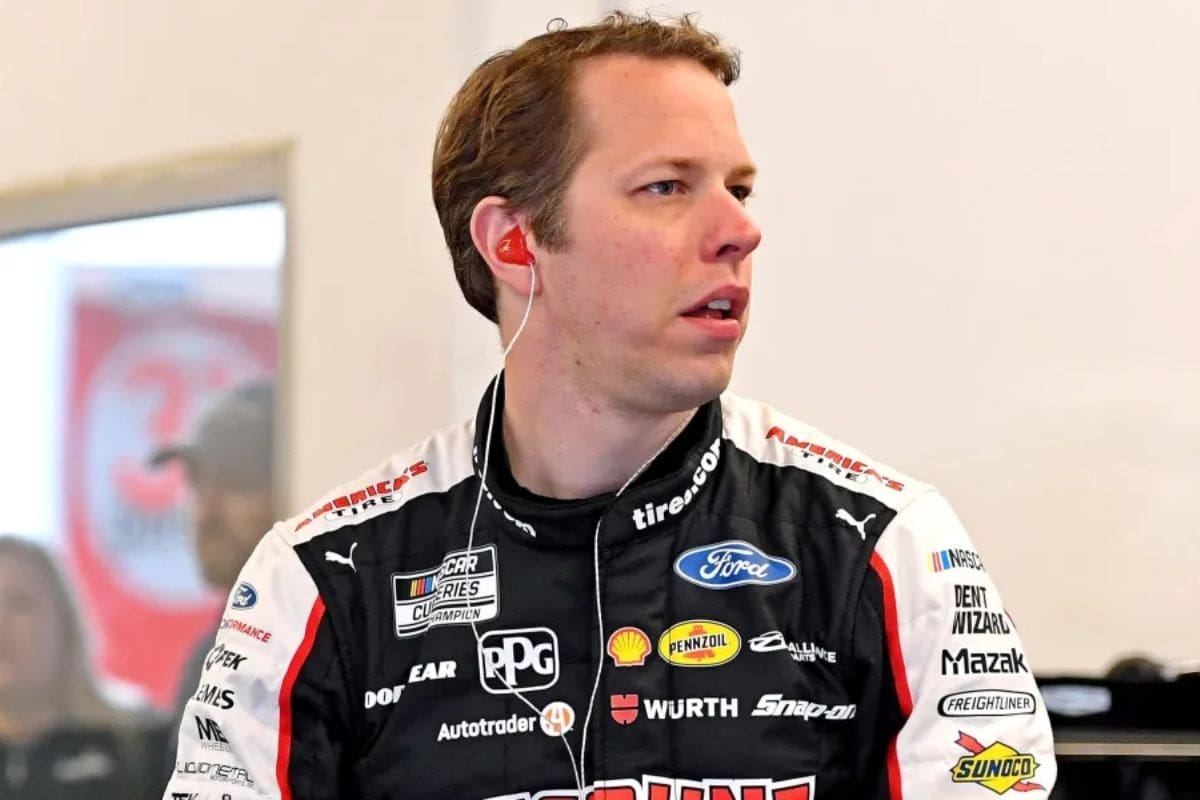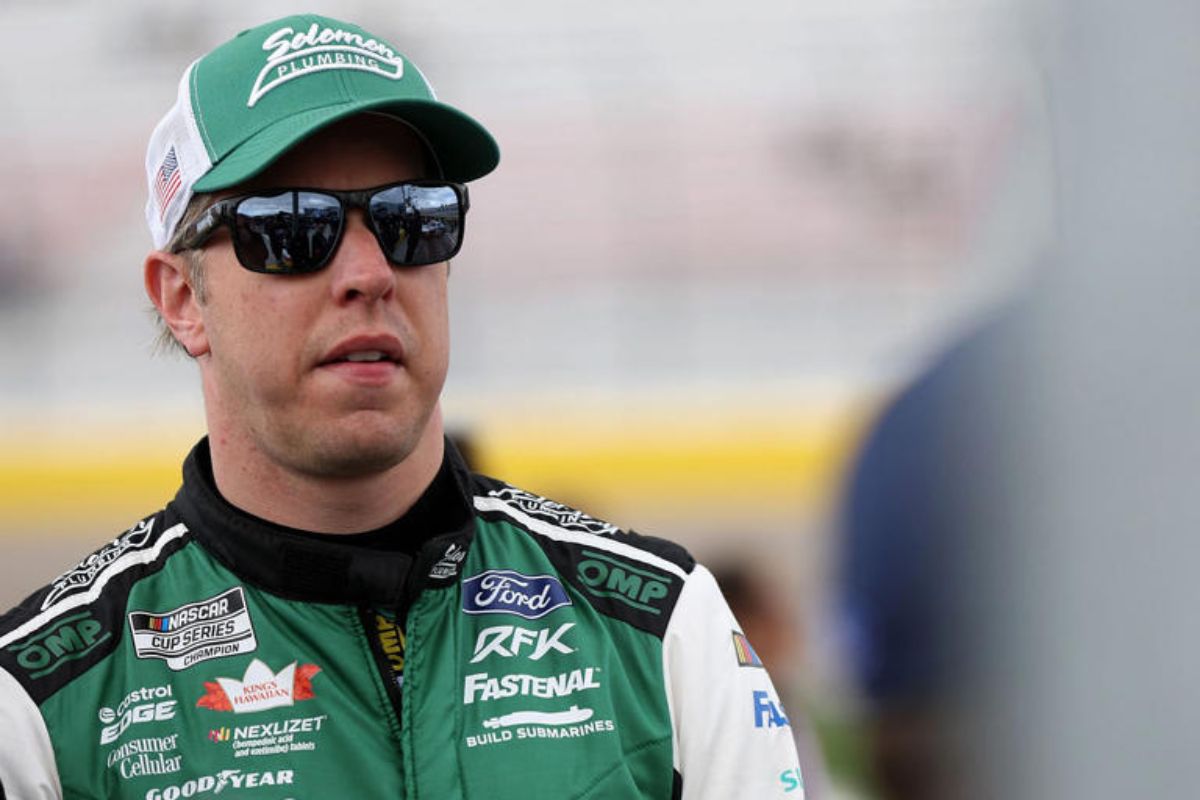Brad Keselowski Exposes RFK Racing: Brad Keselowski‘s public expression of frustration with RFK Racing‘s persistent shortcomings in qualifying speed has drawn attention to deeper systemic issues within the team. The pattern of inadequate qualifying performances not only undermines Keselowski’s potential in races but also raises questions about the team’s technical strategy and preparedness. Analyzing the root causes behind these consistent failings, from equipment inadequacies to possible misalignments in team dynamics and data analysis, could reveal insights into the broader challenges faced by RFK Racing in the fiercely competitive NASCAR environment.
Key Takeaways
- Brad Keselowski criticizes RFK Racing’s poor qualifying speeds, impacting race strategies.
- Keselowski highlights systemic issues in qualifying preparations, affecting team performance.
- Frustration stems from repeated poor starting positions, putting him at a tactical disadvantage.
- Urges need for strategic change to improve RFK Racing’s qualifying approach.
- Emphasizes the psychological toll on team morale due to consistent underperformance.
Overview of RFK Racing’s Struggles
Struggling with persistent performance issues, RFK Racing has greatly underperformed compared to other Ford teams since the season’s inception. The team, steered by drivers Brad Keselowski and Chris Buescher, has not managed to harness the full potential of their vehicles, which is evident in their lackluster race finishes.
The primary concern for RFK Racing appears to be the integration of engineering solutions into their race strategy. While other teams have adapted to the evolving dynamics of car setups and track conditions, RFK seems to be a step behind in implementing these critical adjustments. This delay in adaptation could be rooted in the data acquisition and analysis phase. Advanced teams employ real-time data analytics to make swift pit stop decisions and adjust racing strategies accordingly, a capability that RFK is possibly underutilizing.
Moreover, the issue could also stem from a less optimized powertrain performance. The synergy between engine output, fuel efficiency, and aerodynamic stability is crucial. If any component underperforms, it compromises the car’s speed and handling. For RFK, refining these aspects could provide the incremental gains necessary to compete more effectively with their counterparts.
Qualifying Woes
Although RFK Racing’s Ford Mustangs have shown potential in different aspects of the race season, their consistent inability to perform in single-lap qualifying has become a significant barrier to their comprehensive success. This trend contrasts with the performance of other Ford teams, such as those of Joey Logano and Michael McDowell, who have not only qualified at the front but also secured pole positions early in the season.
The importance of qualifying performance cannot be overstated in motorsport, where starting position often dictates the strategic options available to a team during the race. For RFK Racing, failing to break into the top qualifying slots consistently means their drivers are perpetually battling mid-field congestion.
Data from recent races, including the weekend event at Kansas tri-oval track, shows this issue vividly. While four Mustangs advanced to the final qualifying round, RFK Racing was conspicuously absent. This recurring theme suggests a systemic issue within the team’s qualifying preparations or execution. Whether it’s a deficiency in the cars’ setup for the high-intensity, single-lap performance or a deeper technical inadequacy needs urgent address.
Brad Keselowski’s Frustration
Brad Keselowski’s mounting frustration with his team’s qualifying speed has become a vocal point of contention within RFK Racing. His recent performances, particularly in the qualifying rounds, show a persistent issue that has not only hampered his competitiveness but also exposed deeper strategic failings within the team. Keselowski’s best starting position this season was at Daytona, a race that unfortunately ended in a DNF for him. Since then, his qualifying results have been lackluster, consistently failing to break into the top positions.
“I know we just haven’t had any speed in qualifying all year, it’s been frustrating. Didn’t think our race run was that far off but not as fast as we want to be in a race, but way off in qualifying.” – brad
It is apparent that Keselowski and RFK Racing are missing a critical element in their qualifying strategy. Unlike their counterparts at Team Penske or Stewart-Haas Racing, who have adapted more effectively to the evolving dynamics of NASCAR’s competitive landscape, RFK Racing seems to be lagging in innovation and execution.
Team Effort and Progress
RFK Racing has been actively experimenting with different setups on their vehicles, yet they continue to face challenges in enhancing their qualifying speeds. Despite the proactive approach in tweaking and testing different configurations, their attempts have not yet yielded significant improvements in the critical area of qualifying performance. This ongoing struggle is not due to a lack of effort or innovation but perhaps points to deeper issues within the team’s approach or technical strategy.
“We’re trying things it ain’t for a lack of trying. Just haven’t found any speed in qualifying. We’ve been trying different things to try to get both of our cars where they can qualify better, and we just, we’re not there. We haven’t qualified well all year, we got to figure that out.”- brad
- Persistent Experimentation: The team is continuously adjusting and experimenting with car setups, showing a commitment to finding a solution.
- Qualifying Focus: A specific emphasis has been placed on enhancing qualifying performances, which are important for better placements in races.
- Team Dedication: The remarks by Brad Keselowski reflect a team that is dedicated and persistent in its endeavors, despite facing ongoing challenges.
- Need for Breakthrough: There is an urgent need for a breakthrough in their approach that could potentially transform their performances in qualifiers.
Looking Ahead
With the upcoming races presenting favorable conditions, the No. 6 team has a promising opportunity to capitalize on their competitive race pace and secure a much-needed victory. The pattern of near-wins and high competitive performance, like the almost-victory at Talladega, shows a critical juncture for Brad Keselowski and RFK Racing as they head into a series of races that could potentially tilt the scales in their favor.
Analyzing the team’s performance and the upcoming schedule, it’s evident that their preparation and strategic adjustments could be the key to converting pace into points. Keselowski’s ability to contend at the front, despite setbacks, signals a latent potential that, if harnessed correctly, could see the No. 6 team achieving their breakthrough.
“Well, I think here in Kansas and then three weeks to follow. Maybe with the exception of the All-Star race are important weeks for us. We did good at those tracks last year, and we scored a lot of points and contended for win in probably all of them. So the same expectations going back and would love to capitalize on.” – brad
As the season progresses, the No. 6 team must utilize every race as an opportunity to refine these elements. With diligence and strategic foresight, Keselowski’s experience and skill, combined with a solid race day setup, could very well lead to the top of the podium, marking a significant turnaround in their 2024 campaign.
News in Brief: Brad Keselowski Exposes RFK Racing
RFK Racing’s persistent challenges in qualifying have been critically exposed by Brad Keselowski, showing a significant tactical deficiency within the team. This recurring issue not only compromises strategic positioning but also the overall competitiveness in races. It is imperative that RFK Racing implements thorough strategic changes to address these qualifying shortcomings. Enhanced focus on improving qualifying performance is crucial for ensuring more advantageous starting positions and potentially superior race outcomes.
Our Reader’s Queries
Q. What happened to Brad Keselowski racing?
A. Established in 2007, the team was under the ownership and management of Brad Keselowski, a notable champion in NASCAR’s Cup Series and Xfinity Series. Notably, the team had been active in fielding the Nos. 19 and 29 Ford F-150s, with drivers Austin Cindric and Chase Briscoe behind the wheels in recent times. However, marking a significant turn, on August 17, 2017, Brad Keselowski Racing (BKR) made the announcement of suspending its operations post the 2017 season.
Q. What did Brad Keselowski do?
A. Brad Keselowski, commencing his NASCAR journey in 2004, holds a prestigious position as one of only six drivers to clinch championship titles in both the Cup Series and the Xfinity Series. Additionally, he stands as the twenty-fifth driver to secure victories across all three of NASCAR’s national series.
Q. What does RFK racing stand for?
A. In the year 2021, Brad Keselowski made a significant move by not only joining the team as a driver but also stepping in as a co-owner. He takes the helm of the renowned No. 6 Ford Mustang in the NCS. This addition in ownership prompted a rebranding of the organization to Roush Fenway Keselowski Racing (RFK), thereby amalgamating three esteemed names: Jack Roush, John Henry (Fenway), and Brad Keselowski, in a unified effort.
Q. What does Brad Keselowski own?
A. Keselowski assumes the role of owner and founder of Keselowski Advanced Manufacturing (KAM), a company distinguished for its vertically integrated operations encompassing simulation, design engineering, and serial production manufacturing. Notably, KAM boasts advanced capabilities in Additive Manufacturing (LPBF-M) and CNC, positioning itself as a leading force in innovative manufacturing techniques.
ALSO READ: Skip Flores Slams Brad Keselowski’s Controversial Comment



